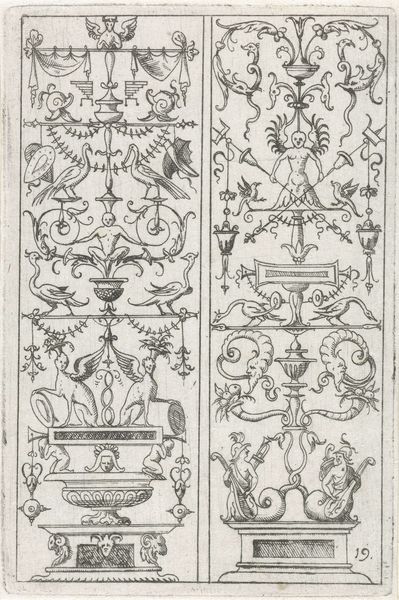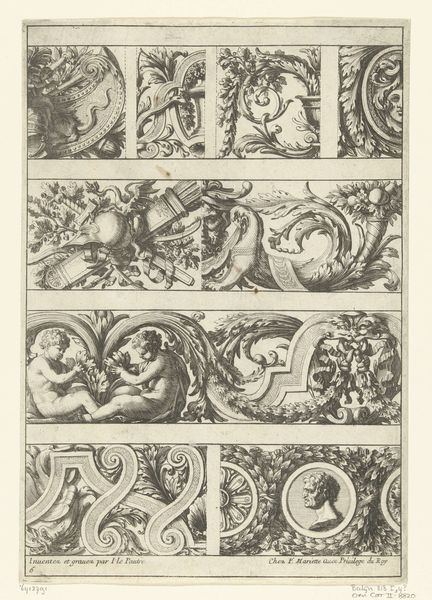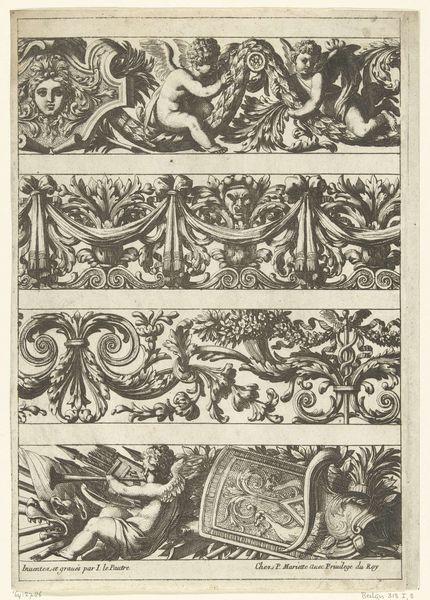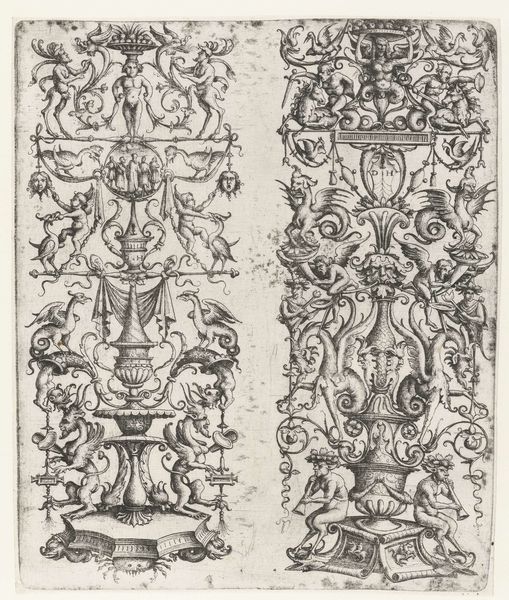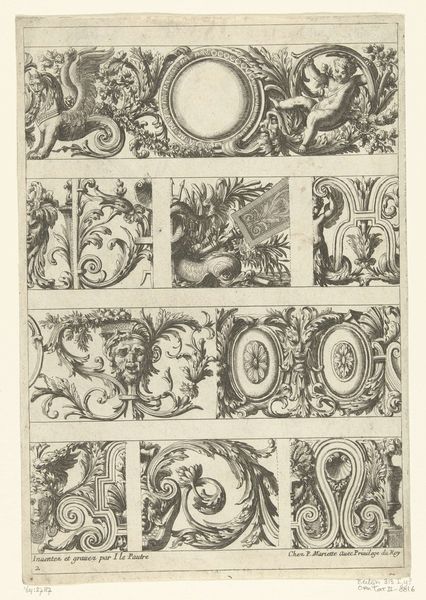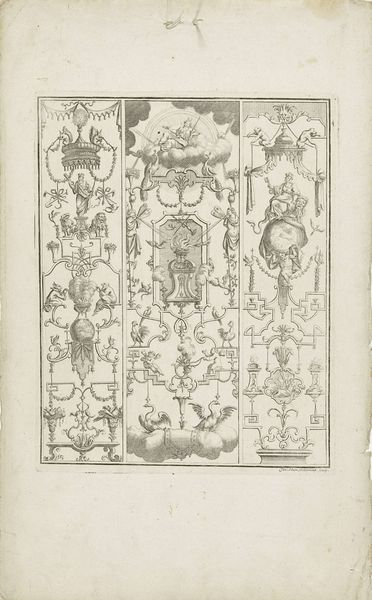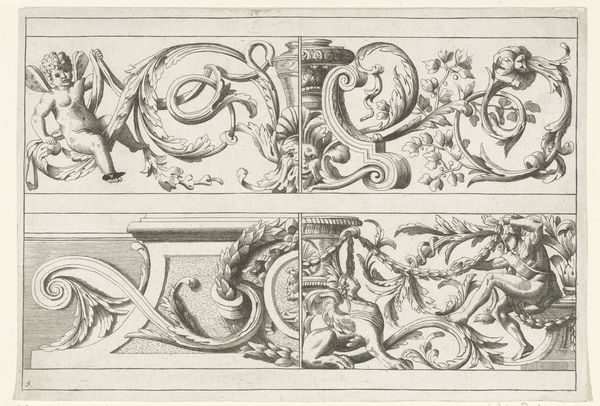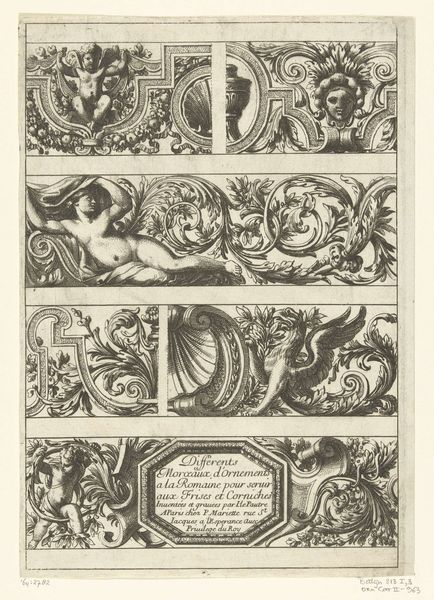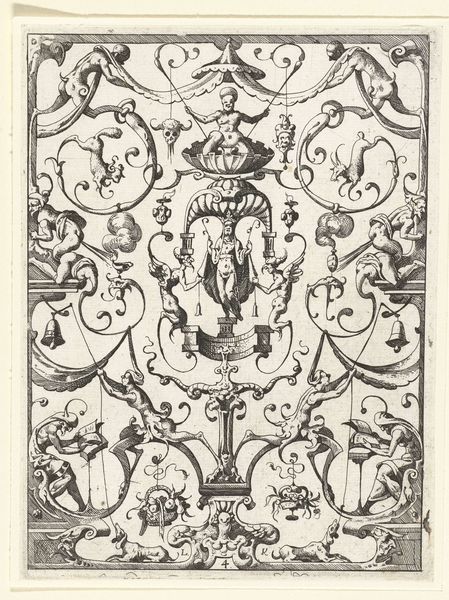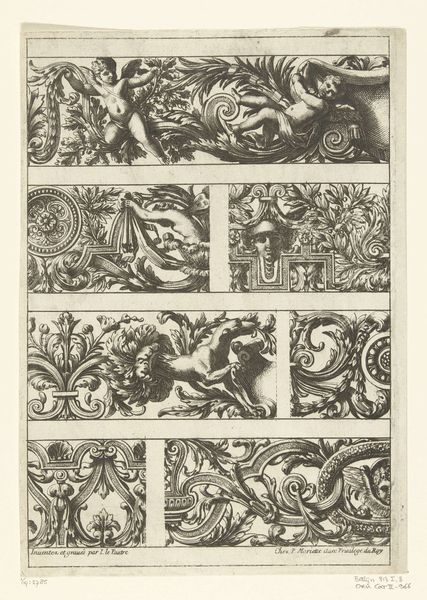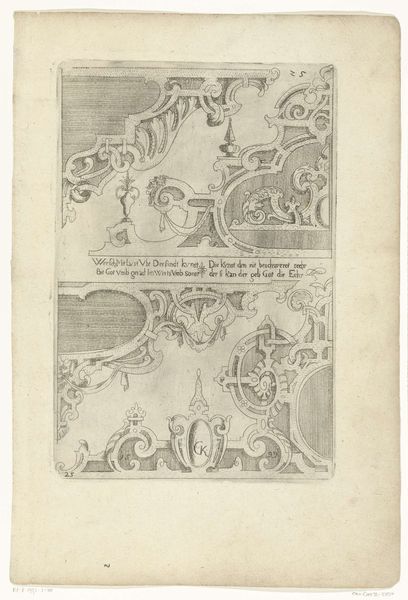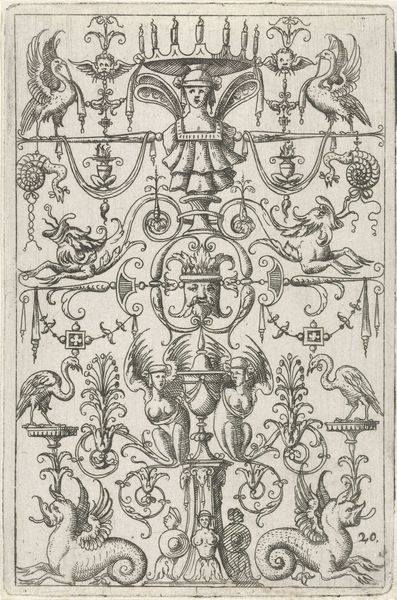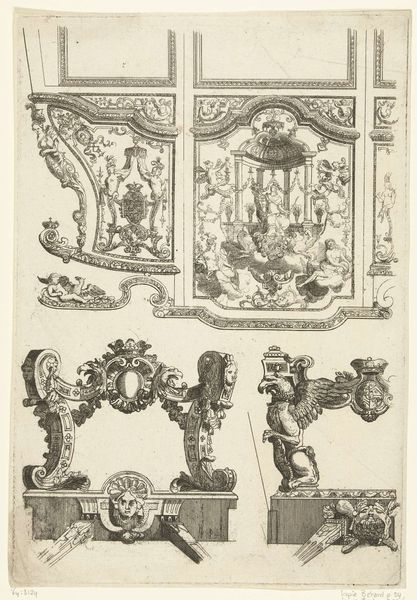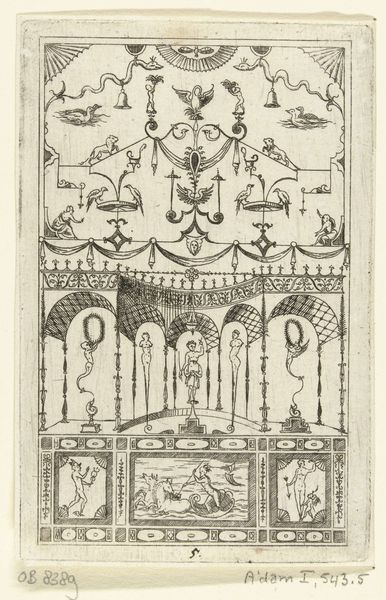
Bovenaan en onderaan een fries, daartussen twee kleine vlakdecoraties c. 1525 - 1594
0:00
0:00
drawing, print, metal, engraving
#
drawing
#
pen drawing
# print
#
metal
#
mannerism
#
11_renaissance
#
geometric
#
engraving
Dimensions: height 105 mm, width 70 mm
Copyright: Rijks Museum: Open Domain
This is an engraving by Hans Sibmacher, made in Germany in the late 16th or early 17th century. It shows a series of decorative friezes, filled with hybrid creatures and ornamental patterns. Prints like this circulated widely in early modern Europe, acting as a crucial conduit for the transmission of artistic ideas. Consider the social conditions that would lead to the production of this print: a growing artisan class in urban centers, an expanding print industry, and a culture of design that emphasized ornamental exuberance. It reflects a society where artisans and craftsmen sought inspiration from a shared visual culture. The presence of classical motifs suggests the lingering influence of Renaissance humanism, intertwined with more fantastical and folkloric elements. To truly understand the meaning of art, we must engage with it as historians. We can use sources such as pattern books, workshop inventories, and social histories to reveal the complex web of meanings embedded within these images, reminding us that art is always contingent on its social and institutional context.
Comments
No comments
Be the first to comment and join the conversation on the ultimate creative platform.
